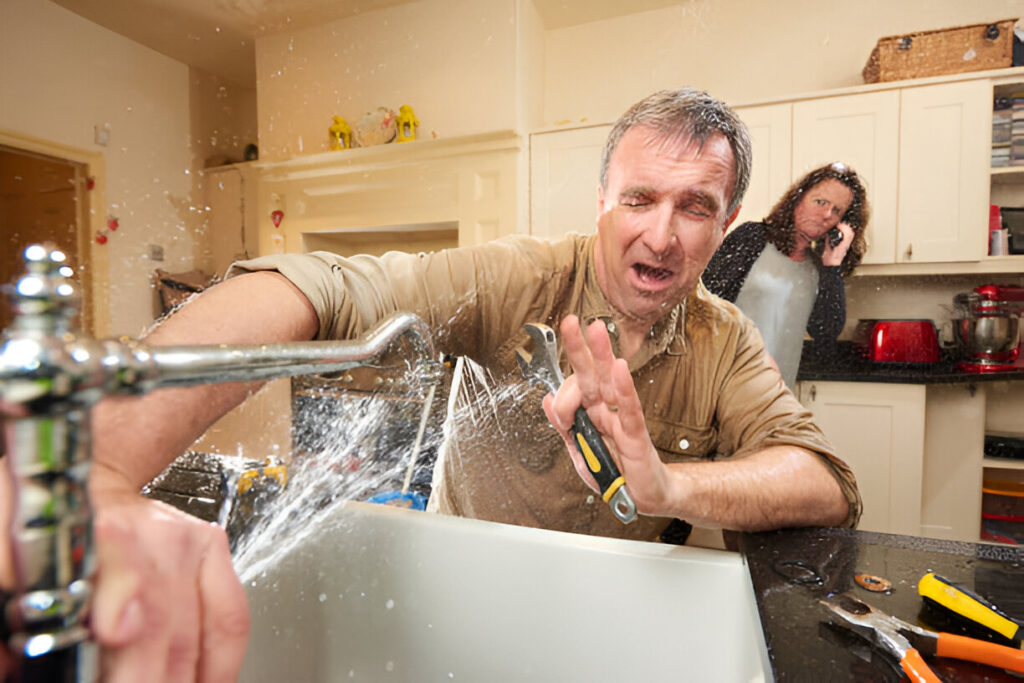Plumbing emergencies are among the most unwelcome surprises a homeowner can face. Whether it’s a burst pipe spewing water or a silent, sneaky leak causing slow but steady damage, these issues can disrupt daily life and lead to costly repairs. Preparing for these unforeseen events can save you time, stress, and money. Doing a quick search for an emergency plumber near me can be a lifesaver, ensuring you have professional help on standby when needed.
With some foresight and the right strategy, you can minimize the risk and impact of these emergencies. In this guide, you’ll learn practical steps to prepare for plumbing issues and some preventative measures to ensure your plumbing system stays in top shape.
Key Takeaways:
- Understand the importance of early preparation for plumbing emergencies.
- Get familiar with the components of your home’s plumbing system.
- Identify key preventive measures to minimize plumbing issues.
- Recognize when to call a professional plumber for help.
Table of Contents:
- The Importance of Being Prepared
- Understanding Your Plumbing System
- Key Preventive Measures
- Developing an Emergency Response Plan
- When to Call a Professional Plumber
- Maintaining Your Plumbing System
The Importance of Being Prepared
Being unprepared when a plumbing emergency strikes can leave you feeling overwhelmed and powerless. Knowing what steps to take immediately can mitigate damage and reduce stress, whether it’s late at night or in the early hours of the morning. Preparing ahead of time enables you to respond quickly to leaks, floods, and other issues, potentially saving your floors, walls, and belongings from water damage.
Understanding Your Plumbing System
Familiarizing yourself with the basics of your plumbing system is crucial in early preparation. Locate the main shut-off valve in your home—usually found in the basement or near the water heater—as this is the first step to stopping further water damage during a plumbing emergency. Understanding how your system works also includes knowing the location of individual shut-offs for toilets, sinks, and external water sources. This knowledge will allow you to act decisively when minutes matter most.
Components to Recognize
- Main water supply valve: This stops water flow to the entire house.
- Isolation valves: These control water flow to individual fixtures.
- Water heater: Regular checks here can prevent one of the most damaging leaks.
Key Preventive Measures
Prevention is often simpler and less expensive than repair. Regular maintenance, such as clearing gutters and ensuring downspouts are pointing away from the house, can prevent water from backing up into your home’s plumbing system, a step emphasized in many homeowner guides on storm preparation. Equally critical is maintaining a steady routine of checks for leaks in less visible places throughout your home, such as under sinks and behind appliances.
Investing in regular plumbing inspections can also identify potential trouble spots before they evolve into significant issues. By setting a schedule for these inspections, you can ensure that small problems—like minor leaks or wear on parts—are addressed before they necessitate more extensive repairs or replacements.
Developing an Emergency Response Plan
Preparing an emergency response plan involves more than knowing where the valves are. Equip your family with what to do during a plumbing failure. This includes knowing who to call and what steps to take to stop further damage. Consider printing out a checklist that everyone in your household can easily access during an emergency.
Essential Plan Components
- Access to emergency contacts, including a reliable emergency plumber.
- A location for shut-off mechanisms marked.
- A step-by-step plan for the specific type of emergency (e.g., burst pipe, overflow, leak).
When to Call a Professional Plumber
Sometimes, a problem might surpass your handling capabilities, especially if it involves complex issues such as sewer line repairs or severe water damage. Calling in a professional not only speeds up the resolution process but also ensures that the fix is a permanent one. Professional plumbers are trained to spot issues you might not notice, potentially saving you from future emergencies.
Research local plumbing services in advance to have a reliable contact before an issue arises. This proactive approach also includes verifying credentials and reading reviews to select the most competent and trustworthy service.
Maintaining Your Plumbing System
Routine maintenance can be an excellent way to prevent emergency plumbing issues. Regular inspections and updates to your system—from checking for slow leaks to replacing worn-out fixtures—can keep everything running smoothly and extend the lifespan of your plumbing infrastructure. Even simple tasks, like running vinegar through your drains and regularly operating seldom-used fixtures, go a long way toward maintaining a problem-free system.
In addition to having a well-stocked emergency kit and knowing the location of your main water shut-off valve, it’s crucial to have a reliable plumbing service on speed dial. This ensures that when an emergency strikes, you can quickly reach out for professional help. For residents in the Houston area, J & G Plumbing Services, LLC offers expert assistance and can be a valuable resource in times of need. Their experienced team is equipped to handle a variety of plumbing issues, providing peace of mind when unexpected problems arise. By preparing in advance and knowing who to call, you can minimize damage and restore normalcy more efficiently.


